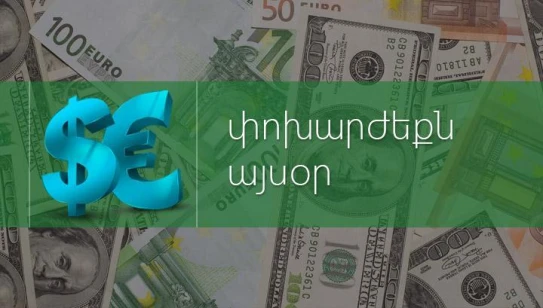Labor market reduction, restriction of the state budget. What is expected of the Armenian economy?



What exchange rates were set today, January 30?
What exchange rates were set today, January 26?
What exchange rates were set on January 14 in the foreign exchange market?
15,000 electric vehicles to be exempted from import duties by 2026
SRC prevented the attempt to transport a large batch of undeclared cigarettes across the RA border
Equatorial Guinea sent a letter to Putin expressing its willingness to host the Russia-Africa summit
In Armenia, inflation decreased by 0.6 percent in November
Precious metal prices have increased
The train loaded with Azerbaijani gasoline arrived at "Ayrum" station in Armenia
Currently, 1300 tons of A95 gasoline of Azerbaijani origin is crossing the Armenia-Georgia border.
The loss of 11.9 million drams caused to the state by the company engaged in the retail sale of construction materials has been recovered.
The National Assembly adopted the 2026 the draft budget
Russia has increased the supply of pork to Armenia
The euro has become more expensive. what changes did the currency market record on October 18?
Continuity of subsidy measures for the development of intensive horticulture will be ensured
VAT exemption for the import of electric cars is extended for another year
What exchange rates have been set for today, October 12
The citizen will not fill out a declaration if he has no income in addition to the financial data in the State Revenue Committee (video)
What exchange rates have been set for today, October 5
The deadlines for the certificates provided by the Republic of Nagorno-Karabakh to the Familiar Residential Program have been extended